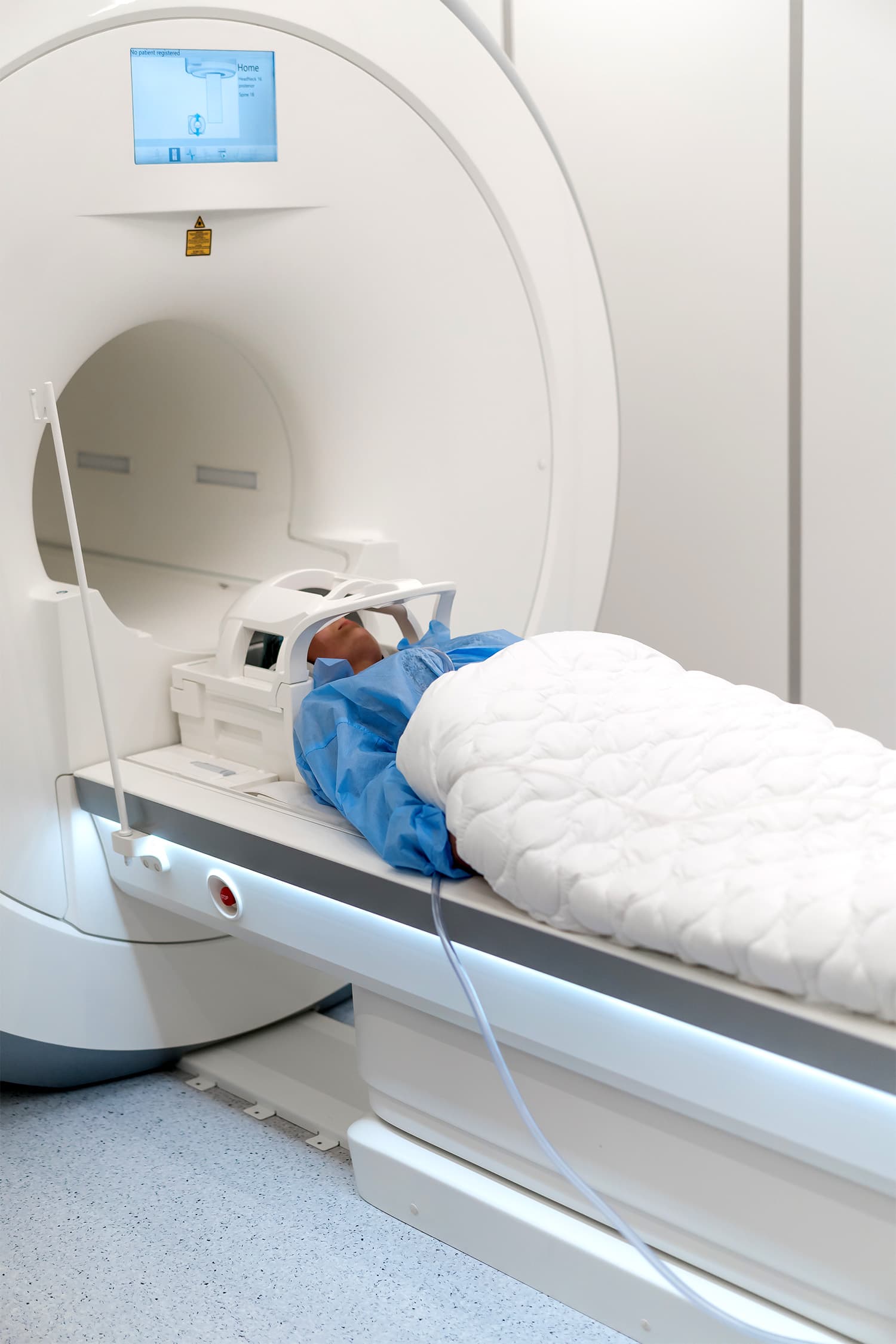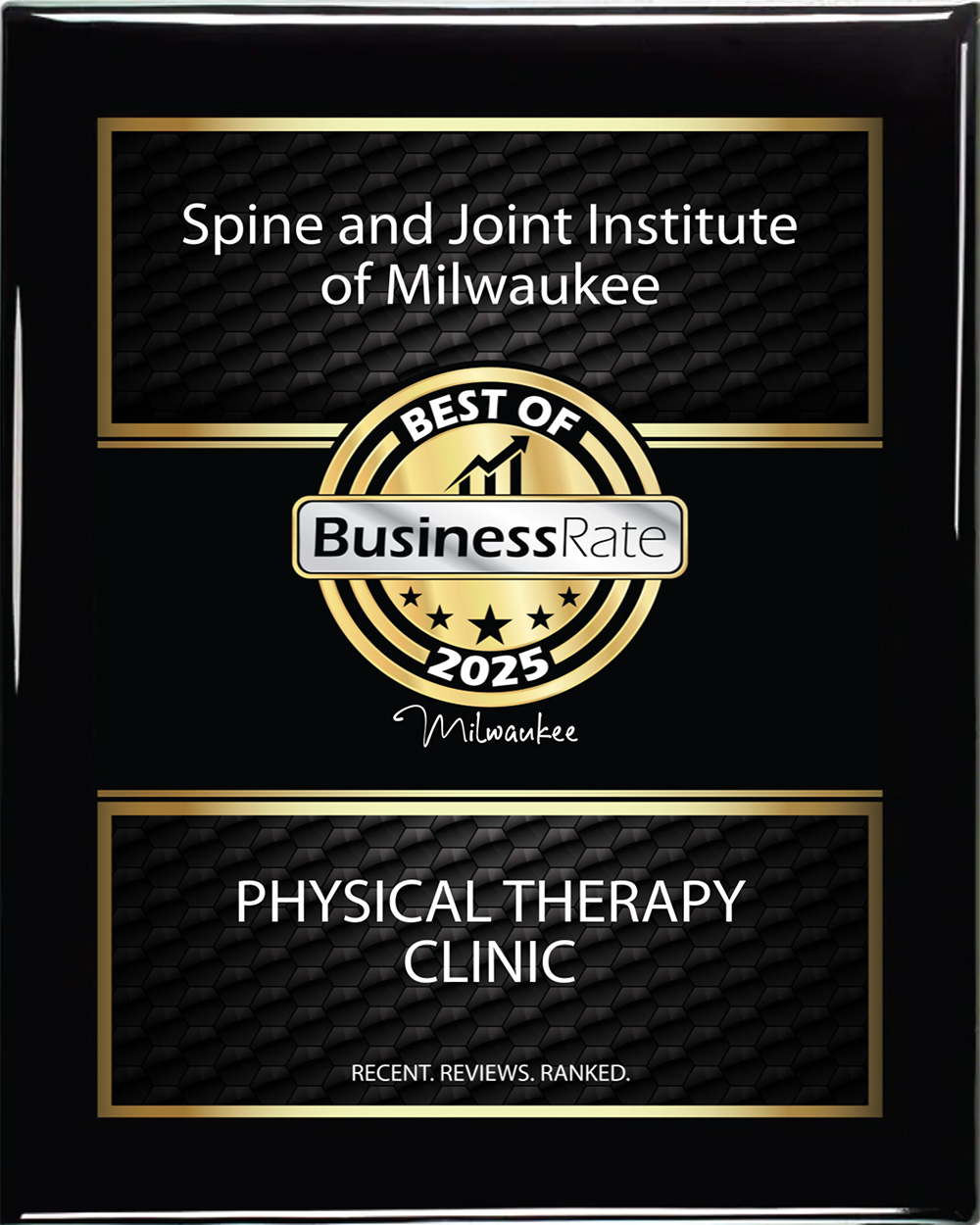Cuando un paciente sospecha que tiene daños en los tejidos blandos, deterioro del cartílago o protrusión discal con dolor y síntomas persistentes, su proveedor de atención médica puede recomendarle una resonancia magnética. En Spine and Joint Institute of Milwaukee, nuestros profesionales médicos trabajan con una red de centros de IRM de primera categoría.
La resonancia magnética es un procedimiento médico no invasivo que utiliza campos magnéticos intensos y ondas de radio para generar imágenes detalladas de las estructuras internas del cuerpo. Produce imágenes de alta resolución de órganos, tejidos, huesos y otras estructuras, lo que permite a los profesionales sanitarios diagnosticar diversas afecciones, como tumores, lesiones, infecciones y anomalías.
A diferencia de los rayos X o el TAC, la RMN no utiliza radiación ionizante, lo que la convierte en una opción más segura para estudios de imagen repetidos. Las resonancias magnéticas se utilizan habitualmente en neurología, ortopedia, oncología, cardiología y otras especialidades médicas con fines diagnósticos.

Durante una resonancia magnética, puede esperar lo siguiente:
Se le pedirá que se ponga una bata de hospital y que se quite cualquier objeto metálico, como joyas, relojes u horquillas, ya que pueden interferir con el campo magnético de la RM.
Se tumbará en una mesa plana que se desliza dentro de la máquina de RM. Dependiendo de la zona del cuerpo que se vaya a explorar, es posible que se le coloque en una posición diferente, como tumbado boca arriba, boca abajo o de lado.
Es importante que permanezca lo más quieto posible durante la exploración para garantizar imágenes nítidas. Es posible que se le pida que contenga la respiración brevemente para minimizar los artefactos de movimiento dentro de la imagen.
La máquina de resonancia magnética genera ruidos fuertes durante la exploración, lo cual es normal. Es posible que le ofrezcan tapones para los oídos o auriculares para reducir el ruido.
Las resonancias magnéticas suelen durar entre 15 minutos y una hora, dependiendo de la complejidad del estudio y de la parte del cuerpo de la que se obtenga la imagen.
Mientras esté dentro de la máquina de RMN, podrá comunicarse con el tecnólogo a través de un sistema de intercomunicación. Le proporcionará instrucciones y orientación durante todo el procedimiento.
Las máquinas de IRM son espacios cerrados, pero la mayoría de las máquinas modernas están diseñadas para ser más abiertas y menos claustrofóbicas. Si padece claustrofobia o ansiedad, comuníqueselo al técnico con antelación. Es posible que le ofrezcan un sedante u otras medidas para ayudarle a sentirse más cómodo.
Una vez finalizada la exploración, normalmente podrá reanudar sus actividades normales de inmediato. Un radiólogo revisará las imágenes, interpretará los resultados y se los comunicará a su profesional sanitario.

Hemos establecido colaboraciones con centros de IRM de renombre en la zona, conocidos por sus servicios de obtención de imágenes de alta calidad. Para garantizar tanto la precisión de las imágenes como la exactitud de la interpretación, damos prioridad a la colaboración con radiólogos reconocidos por su experiencia. Los centros de diagnóstico por imagen que hemos elegido entregan los informes a tiempo, normalmente en 24 horas, lo que refleja su dedicación a la atención del paciente.
Reconociendo el considerable coste de los estudios de RM, aprovechamos nuestras afiliaciones con múltiples centros para facilitar la cobertura a través de la compensación de los trabajadores. Nuestro experimentado equipo administrativo colabora estrechamente con estos centros para resolver todos los problemas de facturación y seguros en nombre de nuestros pacientes.

En el Spine and Joint Institute of Milwaukee, estamos seguros de que nuestro compromiso con la atención integral y la perfecta coordinación con los centros de diagnóstico por imagen superará sus expectativas.